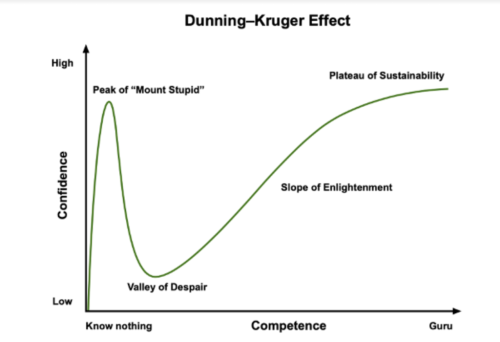
Kaizen in Everything. But Why?
“The only true test of intelligence is if you get what you want out of life.” – Naval Ravikant
Everything is contextual. It can be extremely difficult to ignore the various factors that contribute to our behaviour within a given situation, if not virtually impossible. However, in sports performance, it can be incredibly beneficial for athletes to treat every situation with the exact same level of respect.
Now this isn’t some buddhist monk type of “whatever will be will be” mindset, but it is an openness to thinking in the present moment. In somewhat of a paradox, it disregards the outcome of one’s actions, whilst simultaneously acting in a way that will give the best possible chance of the desired outcome being achieved.
These days, we hear all the time about process-oriented coaching, but not many can articulate exactly what that is. I think Paul O’Connell and Joe Schmidt put it very well when they described it as, “winning the moment in front of your face”.
“Win The Moment In Front Of Your Face”
— Ray Boyne (@AnalysisGaa) September 22, 2020
A tip for all athletes from Paul O'Connell at The Pendulum Summit pic.twitter.com/cqmPAKI8Dm
This idea of fully immersing yourself in the task at hand can be applied both on the field of play and off of it. Obviously, in the engine room of the second row, this mindset would’ve really suited “Paulie”, as he soldiered from ruck to ruck and tackle to tackle on the rugby field. However, we can apply this mindset to any sport, any athlete and probably any person in their day to day life.
What this mindset seems to encompass is a commitment to do your absolute best, no matter the context. Whether you’re cooking a meal, completing a recovery process or smashing out reps in the gym, it is important to focus intensely on the details, complete the task with intent and not let complacency creep in. This is what separates the world-class elite from those that come up short time and time again. A wholehearted commitment to getting the absolute best out of yourself. There is no task too menial, no endeavour that can be completed half-heartedly and no part of the process that is unimportant. Everything must be respected and completed with high levels of personal responsibility.
No matter what anyone else does, no matter what goes wrong, no matter how good things have been going so far, I am going to make a commitment to myself and those around me to not let my performance, intensity or attention drop, even for a second.

This idea came into my mind last week when I noticed that maybe I, and my athletes, had let our attention to detail drop a little, in response to a decent run of form. Despite our best efforts to prevent this from happening, we are all only human, and it will inevitably happen occasionally on an individual level. However, that’s where the importance of the team comes in. The team is there to take ownership of the process and hold each other accountable to the mutually agreed upon standards. It is in this environment that the importance of a culture of brutal honesty must be accepted universally.
Every member of the team must understand that if they are called out or questioned by their teammates, it only comes from a place of care and compassion. A commitment to each other to do the absolute best that you can, both as a team and personally. “I am committed to do my best for myself for you and the others on this team, and I expect the exact same of you”. However, if you let your standards slip, I will not relent and may even make more of a commitment to you to get you back on track.
It can be easy to let standards slip when you’re on the top of the mountain. The attitude of what has been working so far has been good enough, is hard to avoid. However, when you’re the king of the mountain, everyone wants to knock you off. The wolf at the bottom of the mountain is hungrier than the one at the top, as they say.
This is why it is so important to continually adapt and improve. Seek to uphold the standards that have got you thus far, but also, seek to improve in the areas where you are not so strong. Only by continually building blocks on top of blocks in relation to our performance, can we hope to build a wall impenetrable to competitors and in turn a legacy of achievements.
It is well documented how difficult it is to retain a title having won one, and even more difficult to win multiple championships in multiple seasons. This is what separates the truly great teams from the good. It’s what distinguishes a dynasty from a once-off victor. It’s what separates Manchester United of the 90/00s from Chelsea. It’s what separates the 90s Chicago Bulls from the Detroit Pistons. It’s what separates the Kilkenny hurling team from that of Tipperary.
You see, it’s incredibly difficult to achieve brilliance, but it’s even more difficult to sustain that brilliance over time, and even strive to get better. That is why we must almost disregard how far we’ve come, ignore any previous results and even any prior scores in an individual game. When you’re up by 10 points, the only thing that will prevent that score from being narrowed, is to strive to get the 11th.
No matter what the score, no matter what the desired outcome of the game, win the moment in front of your face. That’s where true greatness lies.

“The only true test of intelligence is if you get what you want out of life.” – Naval Ravikant

So, we can see that when it comes to our training, a certain volume of work when paired with adequate recovery is positive for our development, but if that same intensity of work is mismanaged and spiked, then the same exercise intensity can be toxic to the athlete.

Unfortunately, it takes a fall from the peak of mount stupid, on top of the Dunning-Kruger curve, for many of these lessons to land home.
Here to help you achieve your health and performance goals.
At Petey Performance, I’ll assist you every step of the way. What’s stopping you?
Take ownership today.
© 2021 All Rights Reserved
Subscribe to Petey Performance and get updates on new posts plus more exlusive content.